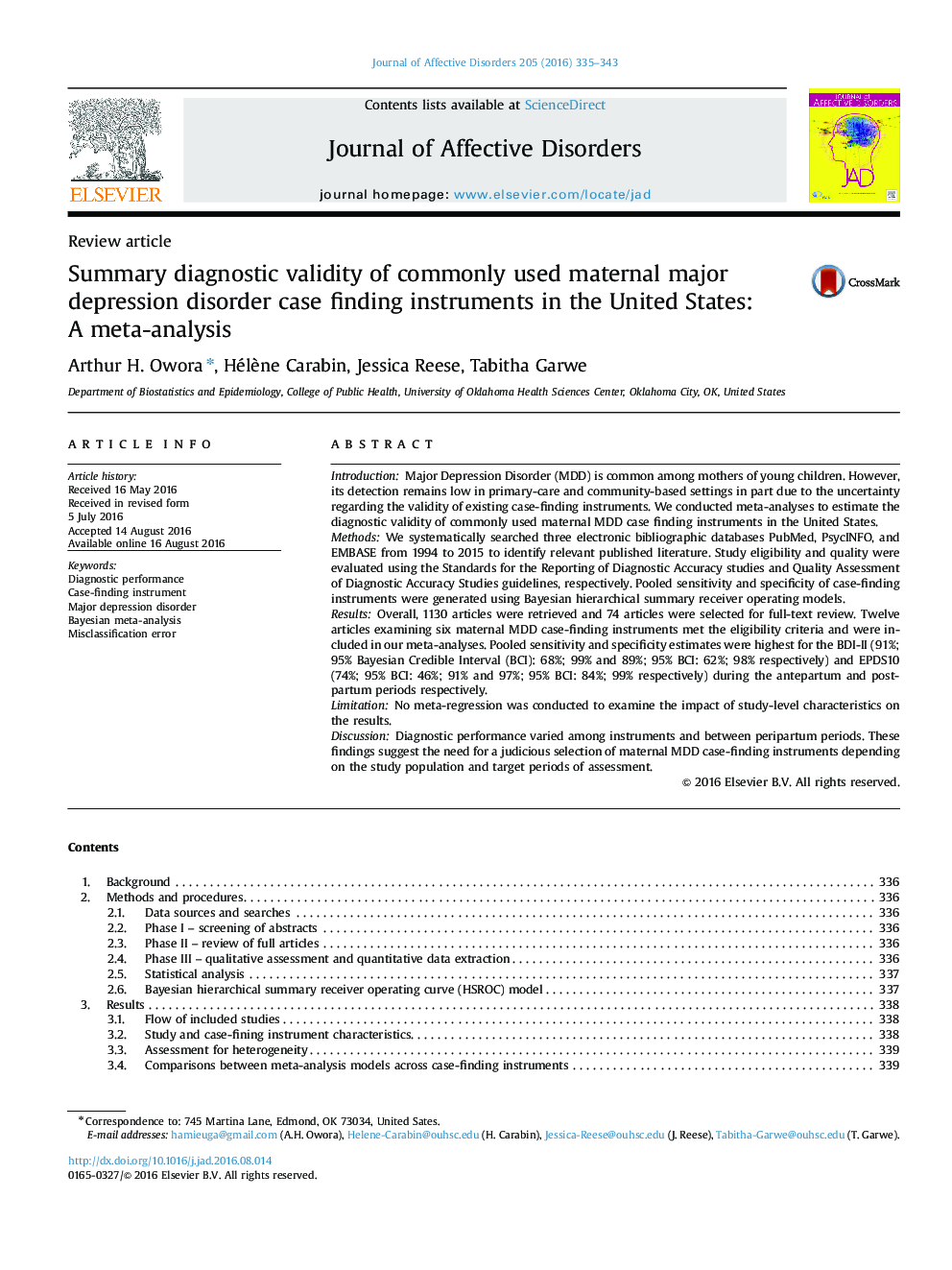| کد مقاله | کد نشریه | سال انتشار | مقاله انگلیسی | نسخه تمام متن |
|---|---|---|---|---|
| 6229719 | 1608120 | 2016 | 9 صفحه PDF | دانلود رایگان |
- The uncertain maternal MDD instrument diagnostic validity stems from population heterogeneity and the use of different reference standards and diagnostic thresholds.
- Case-finding instrument diagnostic performance is underestimated by the conditional dependence of its errors and that of the reference standard examined.
- Adjusted diagnostic performance estimates of common MDD case-finding instruments are peripartum period and instrument-specific.
- Adjusted pooled sensitivity and specificity range from 74% to 97% and 78% to 97% respectively.
- The Beck Depression Inventory Second version had the highest pooled sensitivity (91 %) and specificity (89%) in the antepartum period.
- The Edinburgh Postnatal Depression Scale - 10 item scale had the highest pooled sensitivity (74%) and specificity (97%) in the postpartum period.
IntroductionMajor Depression Disorder (MDD) is common among mothers of young children. However, its detection remains low in primary-care and community-based settings in part due to the uncertainty regarding the validity of existing case-finding instruments. We conducted meta-analyses to estimate the diagnostic validity of commonly used maternal MDD case finding instruments in the United States.MethodsWe systematically searched three electronic bibliographic databases PubMed, PsycINFO, and EMBASE from 1994 to 2015 to identify relevant published literature. Study eligibility and quality were evaluated using the Standards for the Reporting of Diagnostic Accuracy studies and Quality Assessment of Diagnostic Accuracy Studies guidelines, respectively. Pooled sensitivity and specificity of case-finding instruments were generated using Bayesian hierarchical summary receiver operating models.ResultsOverall, 1130 articles were retrieved and 74 articles were selected for full-text review. Twelve articles examining six maternal MDD case-finding instruments met the eligibility criteria and were included in our meta-analyses. Pooled sensitivity and specificity estimates were highest for the BDI-II (91%; 95% Bayesian Credible Interval (BCI): 68%; 99% and 89%; 95% BCI: 62%; 98% respectively) and EPDS10 (74%; 95% BCI: 46%; 91% and 97%; 95% BCI: 84%; 99% respectively) during the antepartum and postpartum periods respectively.LimitationNo meta-regression was conducted to examine the impact of study-level characteristics on the results.DiscussionDiagnostic performance varied among instruments and between peripartum periods. These findings suggest the need for a judicious selection of maternal MDD case-finding instruments depending on the study population and target periods of assessment.
Journal: Journal of Affective Disorders - Volume 205, 15 November 2016, Pages 335-343
